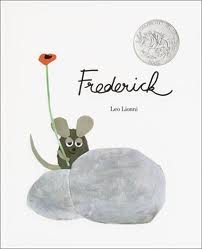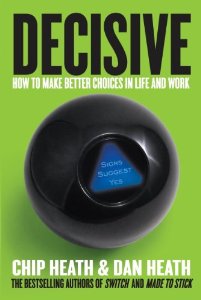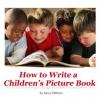START YOUR NOVEL
Six Winning Steps Toward a Compelling Opening Line, Scene and Chapter

- 29 Plot Templates
- 2 Essential Writing Skills
- 100 Examples of Opening Lines
- 7 Weak Openings to Avoid
- 4 Strong Openings to Use
- 3 Assignments to Get Unstuck
- 7 Problems to Resolve
The Math adds up to one thing: a publishable manuscript.
Download a sample chapter on your Kindle.
This week, I have been Frederick. The classic children’s book talks about a mouse who watches all  the other mice gather seeds and grains for the winter, storing them away for the cold days. Frederick is a gatherer, too, but he gathers the sights, sounds, tastes, smells and feel of summer. When dreary days of winter come, Frederick is ready with poetry to remind the others that good days would come again.
the other mice gather seeds and grains for the winter, storing them away for the cold days. Frederick is a gatherer, too, but he gathers the sights, sounds, tastes, smells and feel of summer. When dreary days of winter come, Frederick is ready with poetry to remind the others that good days would come again.
My daughter delivered her second son, my fourth grandchild this week, and I’ve concentrated on just living. On being a Frederick who soaks up life at it grandest and stores it in the depths of my heart to be brought out in a written form when needed.
Here are some of the images of the week:

Mr. GFR weighed in a 7 lbs, 20.5 inches.
Big brother marched into the hospital and literally charmed the entire nursing staff. They were all hanging over the desk to get a look at his fedora and glasses.

Mr. EIR stole the show from his little brother.
And while the household slept, I took early morning walks, just rejoicing in the richness of our lives.

Heron on the Lake on the day that GFR was just two days old.
Sometimes, every once in a while, it’s good to be a Frederick! When is the last time you just lived and enjoyed the fullness of life?

Follow our Pinterest Boards
I was lucky enough to get an Advanced Reader Copy of Chip and Dan Heath’s new book, DECISIVE: How to make better choices in Life and Work. You may know the Heath brothers from their previous books, SWITCH: How to Change Things When Change is Hard and MADE TO STICK: Why Some Ideas Survive and Others Die. They are adept at taking massive amounts of research on topics with widespread appeal and distilling the information into something that can be used in daily life. In DECISIVE, they discuss decision-making and make it practical. Here, I have applied many of their ideas in a simple checklist: What manuscript should you write next?
 Courtesy of the Heath Brothers amazing insights into the applicability of much research, these are practical ideas to help you make the best decision possible. If you want to know more, DECISIVE will be released on March 26, available now for pre-order.
Courtesy of the Heath Brothers amazing insights into the applicability of much research, these are practical ideas to help you make the best decision possible. If you want to know more, DECISIVE will be released on March 26, available now for pre-order.
You just wrote, “The End.” And you hit the SEND button. The manuscript is off to the editor.
What now? How do you decide on the next project?
Build a Career
An agent once asked this question: What is the next logical book for you in terms of building an audience that will support your career?
Do you see the criteria embedded in that question:
- Build an audience
- Support your career
Is that what you want? A career with a growing audience? Then, you probably need to stick with the genre of your first book, and turn out a second book that will appeal to the same audience. If you wrote a mystery and it sold well, write another mystery—different, better, but definitely appealing to the same audience.
But it may not be that easy. Maybe several genres interest you and you want to try something new. But that might risk your career, because you aren’t building a consistent following. How do you sort out all your ideas and commit to the next project? Here are 15 questions to ask yourself.
15 What Next Questions
- Don’t Get Trapped in Too Small a Framework. The decision is rarely one like this: Should I do Mss A or not? Instead, try to look at a range of options. Here are ideas that I have, A, B, C, D, and E. Which of these would appeal to the same audience as my first success?
- What else you could write in the same time period. If it takes you six months to write a novel, what else could you get written in that time period? What project deserves that time commitment?
- What if you couldn’t write the Mss you had planned to write next? What would you write then? For example, if you were planning a picture book biography of Shirley Temple and one was just published to great acclaim, maybe it’s not the best time for this story. So, pretend something similar just happened to your pet idea. What would you do then?

- Could you write the openings of several different manuscripts and THEN decide which one excites you the most? Multi-tracking sometimes allows the cream to rise.
- Look at the career of someone you admire and want to emulate. At a similar point in his/her career what was the next book published? Or, look at a musician or actor/actress and find parallels in their careers. For example, Sean Connery could have gotten stuck in the 007 role and never found his way to new projects. Instead, he has regularly “reinvented” himself by taking risky roles that led to an expanded career. Is it time for you to write that “breakout” book you’ve been planning?


Looking over all the possible manuscripts and ideas—what has you the most excited? Which one are you scared to write—and therefore, will push you to write your best?
Ask the opposite question: if you have been writing mysteries, what if your next novel was a romance? Is this the time to make a switch or not? Can you carry any of your audience over to a new genre? Is there a way to work more romance into your next mystery, so the transition isn’t total, but pulls in readers from both genres?
Could you test new waters with a short story or a short ebook? Is there a way to TRY something new, without doing damage to your current audience? Once you decide on a new mss, you’ll have to commit wholeheartedly to write the best possible. But maybe you can take a couple weeks and try out a new market.
Are you too attached to the status-quo? Your publisher wants more and more of this one type story and you get paid. But somehow, you feel your passions are lessened. At what point do you need to shake up the status quo?
What would you tell your best writer friend to do in this situation?
What are you passionate about? What are your core values? Does Mss A or B or C or D allow you to express that passion better?
If you write this book and a year from now it fails(either not published or published to poor reviews), can you think why it would have failed to reach your audience?
If you write this book and it succeeds, can you discuss why it would make your readers excited about your work?
Do you set goals for your books? If this mystery doesn’t sell 10,000 copies, then I’ll try a different genre for my next project. Would a goal like that help you make the next career move?
Are there deadlines for this project, or can you create a deadline? You’ll devote six months to this fantasy story, and then, you must write your next mystery.
You have a choice to make and the choice will affect your future and your career as a writer. What will you write next? There are no right or wrong answers, only answers that please you. You’re in control. I know–that’s scary! But that’s another post.
Hey, Chip and Dan–What will YOU write next?

Summer time is inevitably full of stops and starts in our writing. There are vacations, the pull of a sunny day, kids’ activities and much more. For me, I’m teaching several professional development classes this summer; local teachers must attend 60 hours of PD/year and often focus on this requirement during the summer. Great work for me, but more starts and stops. (In fact, I have 3 professional development classes scheduled for next week, so I may be scarce.)
Here are some strategies I try during the summer.

Think. Well, just because I’m outside at the lake doesn’t mean I can’t be thinking, daydreaming about my characters. While I’m driving to a PD class, I can do the same. Often, I’m considering details: should this character love red sports cars or black SUVs? Or, I’m just carrying on a conversation with the character about what I’m seeing or doing. That way, I get to know their inner workings.
Netbook. When I have to spend the night somewhere, I always take my netbook and try to work an hour before sleep. I love my netbook. If you’re looking for one, the June 2010 issue of Consumer Reports has a comparison of netbooks and laptops.
Scribble. I also love the Moleskin pocket notebooks to carry about to scribble notes in. Sometimes, I write a scene, other times, just make lists. It’s a simple tool, pencil and paper, but it works. Portable, easy.
What are your summer time challenges? And how do you deal with them?

I’m going today to a high school English class and writing class to talk about my writing process. It may not come up, but I’ve been thinking about what advice I would give a teen about becoming a fiction writer.
Advice on Becoming a Fiction Writer
Essentials
First, be a reader. Read widely. Read everything you can get your hands on, regardless of genre. Put words, phrases, language into your head, banking it for the day you need it. Be voracious. Gulp down stories. Mystery, historical, sff, contemporary – genre almost doesn’t matter. In high school, I read a Harlequin romance a day. Trash reading, yes, but reading. And in between, I read everything else I could. Read.

Photo from http://www.flickr.com/photos/danamarie593/3153514213/
Love story. Besides reading, learn to love storytelling and story. Learn the elements of story, enjoy stories, tell stories, listen to stories, write stories. Stories, they are the stuff of books.
Love language. Get the dictionary habit and don’t ever stop looking up words. Revel is an apt word or phrase. Read aloud whenever you can, so you develop an ear for a story well told.
Pencil and Paper. Buy a good pencil and a stack of paper and start writing.
Optional
Well, anything else is optional. However, I think these things are helpful, if you have the inclination, opportunity, funds, etc.
Computer skills. Today, almost everything in publishing is done on computer and the more comfortable you are with computers, the better. Word processing, those awful Adobe programs, video-editing, etc. Learn as much as you can.
Web skills. Likewise, any skills you can develop for the internet will help. Learn to do blogs, webpages, social media, upload pictures, upload videos, etc. Anything you can do will give you a way to boost marketing.
Accounting, marketing and basic business classes. Fiction writers are generally self-employed, so I’d recommend any business classes which will help you track income, market yourself and your work, negotiate contracts, etc.
Career-based training. Everyone has to eat. A job is a good thing, especially in the early years of your career. Get trained as a doctor (Michael Creighton), a lawyer (John Grisham), or a gemologist. Avoid teaching, because grading papers bleeds away your time to write.
Public speaking. Many writers earn a large portion of their income from public speaking. Take as many classes as you need to become comfortable in front of people.
OK, what skills or passions did I leave out? What else would you advise a teen who wants to be a successful fiction writer?
Related posts:
- 3 Ways Writers Survive Slow Times
- 6 Distractions
- Character and Plot

Craft Challenges for the Writing Life
Whatever you write - novels, poetry, picture books, nonfiction - it’s important to keep your craft growing and improving. I take this seriously and find ways to challenge myself.
One way has been the Friday Ideas group, which has kept me searching for viable picture book ideas.
This year, I’m taking the Sky Challenge.

(click to enlarge)
When I went to New York City for the SCBWI Mid-Winter conference, one day, I visited the JP Morgan Library, where they had an exhibit of landscape paintings. One was a painting of sky by John Constable. The label beside it said that Constable had spent a year studying sky and clouds, so he could improve his landscapes.
So, I decided to take Constable’s Sky Challenge and write something about the sky every day. Study the sky, find ways to describe it, without repeating or being boring. After a month, here are some things I’ve learned.
- It’s fun. Focusing my attention on something like the sky has been fun. It is, of course, always changing, so there’s always something to notice, a habit that writers should always cultivate.
- It’s challenging. OK, how many ways can you write blue? Or grey clouds? I’m finding that the verbs are very important; but that comes with challenges, too, because how many times can you write that the wind sculpted the clouds? The wind becomes a major character in this challenge and it’s hard to find another agent of action. Hard, but I’m finding hints here and there.
- I’m better at metaphors than I thought. I don’t use many metaphors in my writing, but I’m finding that I watch the sky, then mull over what I’ve seen and try to think of some fresh way to describe it. Again, how many times can you write that yellow light spread over the grey clouds?
- Examples:
Torn clouds blew across the wind-chapped face of the sky.
Someone had poured melted butter over the grey clouds.
Wisps of clouds were frayed by the last sigh of winter giving way to spring.
Join me! Take the sky challenge. Even if you only do it for a month, instead of a year! I think it will help me to portray how weather affects a character in a story.
Post from: Revision Notes
Revise Your Novel!
Copyright 2009. Darcy Pattison. All Rights Reserved.
Related posts:
- Originality
- Friday Ideas 2008
- Starting a Novel with Voice

Creative writing tips, courtesy of the season:
- Peppermints! When you add sensory details to a story, the most common is visual details. The two most neglected are olfactory (smell) and gustatory (taste). Flavors of the season are peppermint, cinnamon and cloves.
- Gifts! Give your character something to hold in his/her hands. It’s one of the easiest and best ways to characterize someone, while providing you, the writer, with great verbs. Put an iron skillet in Grandma’s hands and watch her rustle up a meal for the 30-odd relatives coming by tomorrow.
- Trees! The setting of a story can add to the mood, if you choose the right details. A pathetic, sad tree is aluminum, thin, sparse, leaning. A cheerful tree is straight, full, soft fir needles, well-lit, glowing, radiant. Be precise in the details you use and you’ll evoke a mood to support (or contrast) with your character’s inner life.
-
Worship! Just as the Wise Men, shepherds and angels worshiped the birth of the Christ, so we should remember to keep life in perspective. Writing is fun and consuming, but there’s more to life than just writing. Take time off to enjoy your family, attend a madrigal feast (I’m going Thursday night!), go caroling with friends, and ponder the Deep Magic of this special child.



 the other mice gather seeds and grains for the winter, storing them away for the cold days. Frederick is a gatherer, too, but he gathers the sights, sounds, tastes, smells and feel of summer. When dreary days of winter come, Frederick is ready with poetry to remind the others that good days would come again.
the other mice gather seeds and grains for the winter, storing them away for the cold days. Frederick is a gatherer, too, but he gathers the sights, sounds, tastes, smells and feel of summer. When dreary days of winter come, Frederick is ready with poetry to remind the others that good days would come again.












 How to Write a Picture Book
How to Write a Picture Book
